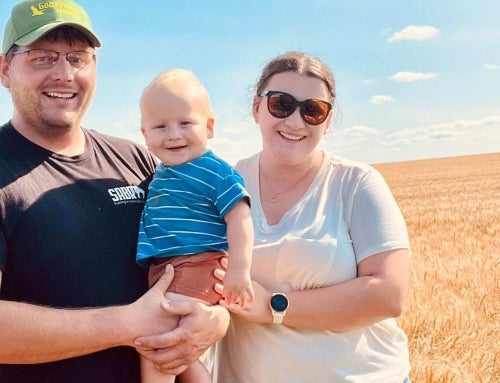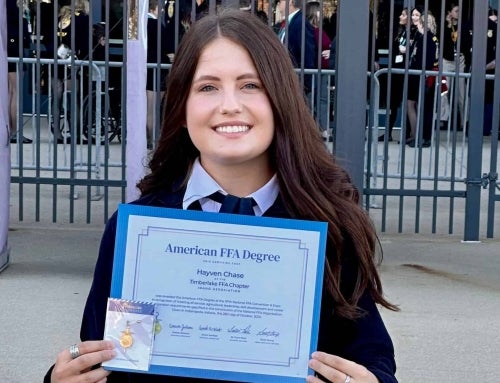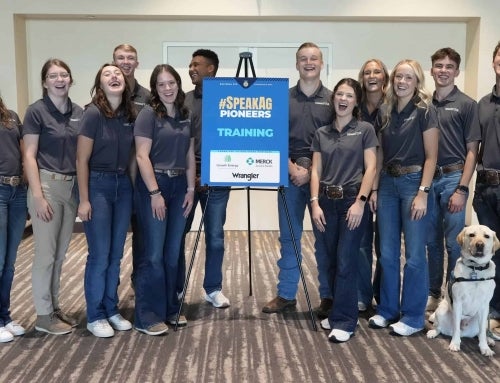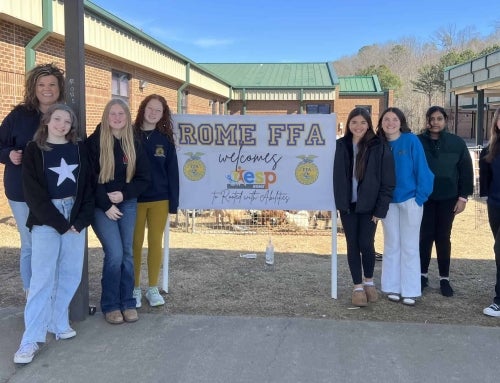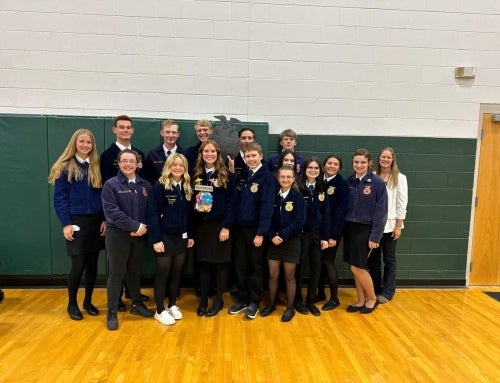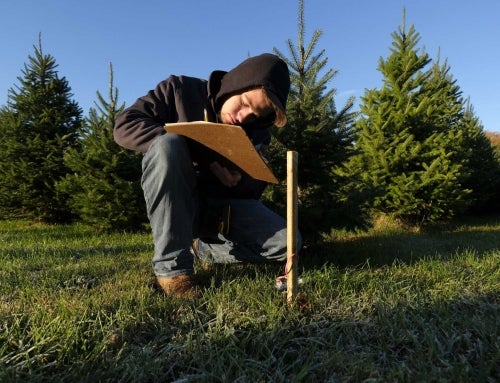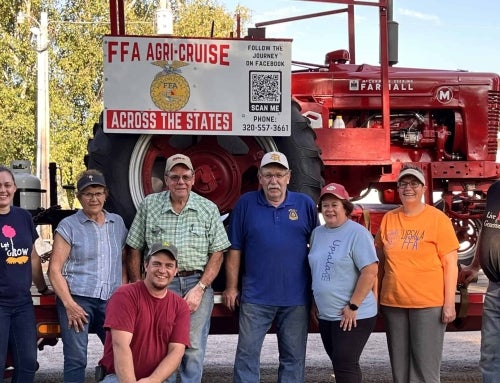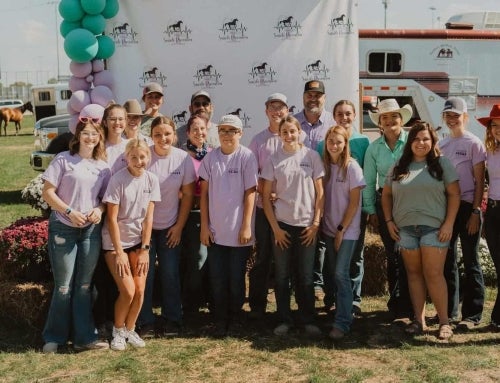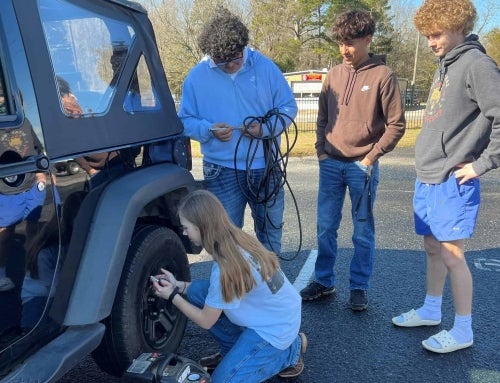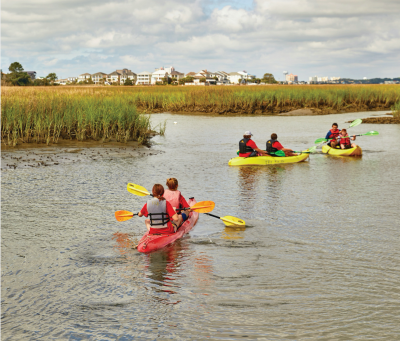
South Carolina FFA Camp attendees take to the water on House Creek.
Synonymous with fun in the sun, relaxation and vacations, summer is a highly anticipated time of year for many people, but it’s especially exciting for FFA members. Throughout the summer, FFA camps are in full swing in many states, giving members the opportunities to make new friends, engage in team-building activities and hone their leadership skills — not to mention create memories likely to last a lifetime.
“FFA camps are steeped in tradition,” says Frank Saldaña, South Carolina region III and IV agricultural education coordinator. Saldaña is instrumental in organizing the annual summer camp sessions at the South Carolina FFA Center. “Many campers come with advisors who also came to camp when they were FFA members, or their parents came and now it’s their turn. It’s almost considered a rite of passage, and it’s definitely very special.”
A Rich History
Camp Clements, the camp that sparked this summertime tradition, was established in the late 1920s, and it’s still going strong.
Located in the foothills of the Cumberland Mountains on the Caney Fork River in Van Buren County, Tenn., the camp was named for its creator, Dudley M. Clements, who first imagined the original FFA camp when he was a young agriculture teacher in 1911.
Eventually serving as the first state supervisor of agricultural education in Tennessee, Clements saw his dream come to life in 1927. Aside from a three-year closure from 1958 to 1961, Camp Clements has remained operational since its inception, making it the nation’s oldest FFA camp.
The second oldest FFA camp is the North Carolina FFA Center at White Lake, which has been in operation since 1928 and has hosted upward of 150,000 members to date.

Lily Campbell and Audrey Cutlip from WTC Kershaw County FFA in Camden S.C., enjoy team-building activities.
Many other states followed suit in the 1930s, with FFA camps popping up across the nation, including Arkansas, Wyoming, North Dakota, New Hampshire and New Jersey. In 1941, the National FFA Camp opened in Washington, D.C.
The National FFA Camp location at the nation’s capital was chosen intentionally, offering FFA members an opportunity to sightsee and explore, and it was immediately popular. During the summer of 1941, 483 boys from 49 chapters in 17 states visited the camp.
However, the excitement was short-lived as the United States entered World War II later that year, and the camp closed until 1946. After briefly reopening, the National FFA Camp closed permanently in the 1950s. It was transformed into the National FFA Center from 1958 to 1997.
While the National FFA Camp is a thing of the past, state FFA camps continue drawing FFA members each summer, many of whom return year after year.
A Lasting Impression
Although it’s not one of the state’s original FFA camps, the South Carolina FFA Camp has drawn thousands of young people since 1956.
Operated by the South Carolina FFA Board of Directors, four camp sessions are held during June and July at the 36-acre South Carolina FFA Center in the marsh of North Myrtle Beach. Each session lasts five days.
South Carolina FFA Camp attendees can expect to spend time outdoors, taking their turn on the high and low ropes courses, completing an obstacle course, and playing miniature golf and volleyball, as well as enjoying water activities such as swimming and kayaking.
“Our camp is full of energy and excitement,” Saldaña says. “By participating in the many activities and events we offer and forming teams with their peers, campers grow and enhance their leadership skills. They’re learning more about themselves, forming friendships and creating stronger bonds within their chapters, all while having fun. It’s a unique experience that’s hard to re-create — unless they come back to camp, of course.”
Grant Hall is a perfect example of a camper who couldn’t get enough, first attending the South Carolina FFA Camp when he was 7 years old with his father, who served as the Marlboro County FFA advisor. Hall continued attending camp with his father until he could go as a camper with his own chapter, Cheraw FFA. After high school graduation, he went back to camp as a counselor, a decision he says changed his life in more ways than one.
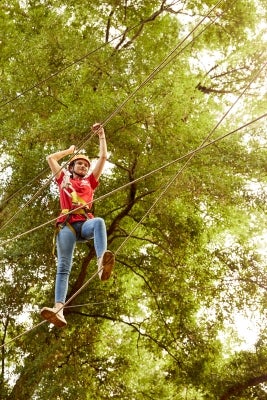
Annabella Leach, a member of Wagener-Salley FFA in Wagener, S.C., balances fun with team building on the high ropes course at the South Carolina FFA Camp.
“I would not be an ag teacher today if not for the South Carolina FFA Camp, and I probably wouldn’t have met my wife had we both not attended camp as counselors,” Hall says. “To say it’s a special place to me is a huge understatement.”
After spending three years as a counselor, Hall went on to become an FFA advisor for Carvers Bay FFA in Hemingway, S.C., and now he brings his members to the South Carolina FFA Camp.
One of those members is Spencer Watts, the vice president of Carvers Bay FFA, who attended camp for the first time in 2021.
“I’d heard so many good things about FFA camp, and everyone was right: It was amazing,” Watts says. “I got to meet chapters from across the state while also growing closer to my chapter members. We did lots of team-building activities, so everyone had a chance to get involved and share their ideas, and we all worked together throughout the week during different competitions and events.”
Watts enjoyed South Carolina FFA Camp so much he plans to follow in his advisor’s footsteps and become a counselor next year, helping to ensure that the magic of camp stays alive for the next generation.
“Anyone and everyone who can attend FFA camp should go,” Watts says. “There’s nothing quite like it, and I already can’t wait to go back.”
——
FFA Camps Across the Country
Looking for an FFA camp in your region? We’ve compiled a list, but this is only a sampling. There are more great ones across the United States. Check with your advisor or browse your state association website to find any in your area!
1. Arizona FFA Leadership Camp at Camp Shadow Pines in Heber, Ariz.
At this five-day camp, FFA members from across Arizona form teams to compete in relay races and tackle an obstacle course while also enjoying hiking, fishing, boating and swimming. AZFFA.org/FFA-Camp
2. Oswegatchie FFA Camp in Croghan, N.Y.
Offering several weeklong sessions each summer, the Oswegatchie FFA Camp offers team-building activities on its high and low ropes courses, plus horseback riding, archery, kayaking, zip-lining, mountain biking and much more — all in the Adirondack Park. Oswegatchie.org
3. Ohio FFA Camp Muskingum in Carrollton, Ohio
Ohio FFA Camp Muskingum hosts six sessions throughout the summer that include leadership workshops, swimming, canoeing, scavenger hunts and more. The camp also offers special sessions like Camp Canopy, a camp focused on forestry and wildlife identification and education organized by the Ohio Forestry Association. OhioFFA.org/Camp
4. Wyoming FFA Leadership Camp near Lander, Wyo.
With two summer sessions, the Wyoming FFA Leadership Camp offers a balanced mix of work and play with workshops in public speaking and interviewing, as well as outdoor adventures, team competitions and a camp-wide dance. FFACamp.org
5. Camp John Hope in Fort Valley, Ga.
Central Georgia’s Camp John Hope has been a mainstay in youth recreation and education for over 80 years. In that time, its campground has been enjoyed by various organizations, including New Farmers of America (NFA) and Family, Career and Community Leaders of America (FCCLA). Activities include canoeing and kayaking, crafting, swimming, archery and rock wall climbing. Don’t be afraid to get dirty — the muddy obstacle course is a hit! CampJohnHope.com



